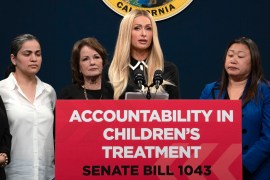Pennsylvania Gov. Tom Corbett is considering an expansion of Medicaid to cover hundreds of thousands of uninsured residents if he can also win significant changes to the existing part of the entitlement program, which otherwise would continue in its current form.
Linking the two issues — a Medicaid expansion envisioned by the Affordable Care Act and money-saving changes in a program that he considers unsustainable — could achieve goals sought by liberals and conservatives. But it will require a delicate balancing act with both parties in Harrisburg as well as the Obama administration.
Any resolution must “marry” the two issues, Christine Cronkright, a spokeswoman for Corbett, said Tuesday: “ensuring access to quality and affordable health-care options while also looking at the fiscal reality.”
She said reforming the current program, which consumes 27 percent of the state’s general fund budget, must come first.
Corbett has made clear that he wants to change Medicaid. In recent statements, however, Beverly Mackereth, secretary of the Department of Public Welfare, was more specific about what “personal responsibility” might look like. There might be a “work-search” requirement, for example, and co-pays for emergency-room visits.
Corbett has also expressed interest in using federal Medicaid expansion dollars to subsidize private insurance, as Arkansas and Iowa are trying to do. His office has been exploring options with the U.S. Department of Health and Human Services, Mackereth has said, and is discussing possibilities in meetings with members of the General Assembly this week.
The governor rejected an expansion of Medicaid when presenting his budget in February, around the same time that Gov. Christie said he would accept it in New Jersey. But Corbett never fully closed the door, and Cronkright said Tuesday that his position had not changed.
Advocates for expansion said that they had detected an evolution in his thinking and that they had heard an announcement might come next week.
Several months ago, “we were a lot more in a fighting mood,” said Letty D. Thall, public policy director for the Maternity Care Coalition in Philadelphia. “Now, the governor’s talking about Medicaid expansion,” she said, with the discussion shifting from whether to how.
At a City Hall panel discussion on expansion Tuesday, two leaders of last session’s efforts in the General Assembly — Sen. Vincent Hughes (D., Phila.) and Rep. Gene DiGirolamo (R., Bucks) — said they had observed a similar shift.
The Senate initially approved an expansion in a 40-10 bipartisan vote during the frenetic budget process in July, but it was not considered by the House. Both lawmakers predicted it would easily pass the House if the leadership allowed it to come up.
Both also expressed concern about reports that Corbett is considering benefits changes and using Medicaid dollars to subsidize private insurance.
Most low-income people are not eligible for Medicaid, which covers specific categories, such as pregnant women. The expansion envisioned by Obamacare — and made optional by the Supreme Court — included those making up to 138 percent of the poverty level, or more than 500,000 people in Pennsylvania.
The federal government would pay 100 percent for three years starting Jan. 1, gradually declining to 90 percent, bringing billions of dollars into the state — a key argument cited by proponents.
Even a small delay could mean losing out on millions of dollars, an argument that they are also using to not complicate the issue by linking expansion with reforms — or at least to approve the basic expansion now and come back with changes later.
They cited a momentum toward expansion.
In the months since Corbett announced his opposition, several Republican governors have decided to support it. At least three reports have cited fiscal benefits for Pennsylvania.
Starting Oct. 1, as people apply for insurance through marketplaces set up by the health law, they will discover that tax benefits are available only for those earning over 138 percent of poverty level, since lower-income people were supposed to be covered by a Medicaid expansion, said Alyssa Goodin, legislative codirector of Cover the Commonwealth, which organized Tuesday’s panel.
That, she said, will likely add to the momentum.






